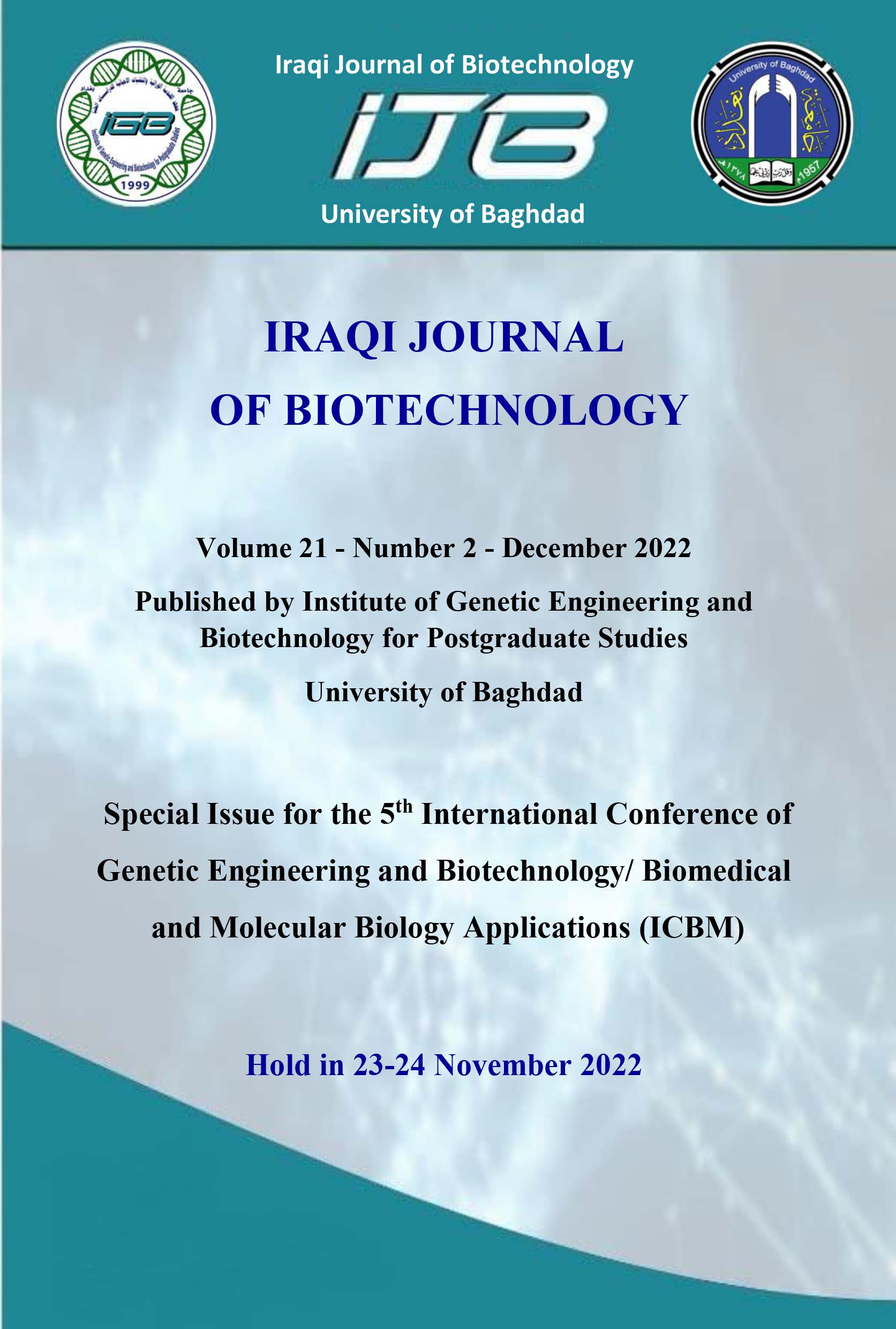Detection of blaOXA-48 and blaVIM-1 Genes among Carbopenems Resistance in Klebseilla Pneumoniae Isolated from Urinary Tract Infections in Baghdad Hospitals
Abstract
Klebsiella Pneumoniae gram-negative bacteria are common causes of urinary tract infections (UTIs). Such pathogens can acquire genes encoding multiple mechanisms of antimicrobial resistance, including carbapenem resistance. This study aimed to detect the carbapenemase-producing ability of some K.pneumoniae bacterial isolates from urine specimens of patients suffering from complicated UTIs at three vital care hospitals in Baghdad, Iraq; and determine the prevalence of carbapenemase genes among plasmid-bearing isolates, and explore the possibility of horizontal gene transfer to other bacterial species. The samples were collected from November 2021 to April 2022. About180 samples of urine were collected from in patient's and outpatients who attended they were collected at three Baghdad hospitals: two from Karkh (AL-Yarmouk hospital and Al-karamu hospital), and one from Rusafa (Baghdad educational hospital). Most of the patients were females (62.7%), while the percentage of males was (37.2 %). Midstream urine MSU samples were collected in sterile containers from patients with symptoms of urinary tract infection. The samples were cultured on blood agar and MacConkey agar, Chroma ager selective media and incubated at 37℃ for 24 hr. The results were recorded by observing grown colonies and isolating Gram-negative bacteria. In this study, all n=21 (100%) isolates were determined positive for the 16srRNA housekeeping gene, n=11(52.38%) isolates were positive for the blaOXA-48 gene, and n=6 (28.57%) isolates were positive for blaVIM-1, The extracted plasmids were used as templates for PCR amplification of blaVIM-1, and blaOXA-48 carbapenemase genes. Plasmids carrying the blaOXA-48, and blaVIM-1genes from six K. pneumoniae clinical isolates were successfully transformed into competent. The transformants were carbapenemase-producers and acquired resistance to some of the tested antimicrobial agents as compared to untransformed ones. The study concluded that the rate of carbapenem resistance among K.pneumoniae bacterial uropathogens in Baghdad, is relatively high and can be transferred horizontally to other bacterial hosts.


